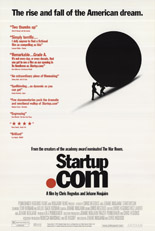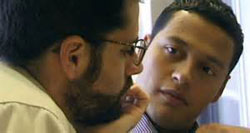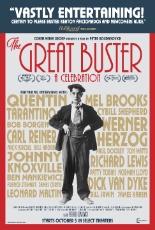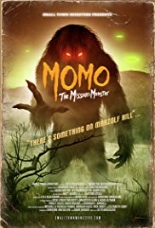
 After helming nine documentaries on Bigfoot, Mothman and other cryptids, director Seth Breedlove finds a novel approach to investigate the creature that terrorized the small town of Louisiana, Missouri, in 1971 and ’72. Instead of using recreations of events, he lets footage from a heretofore-lost, low-budget, Boggy Creek-style film dramatizing the sightings carry that workload. The trick is that unearthed B-movie doesn’t exist — at least not until Breedlove and his merry band of co-conspirators made it, as part of the end result, Momo: The Missouri Monster.
After helming nine documentaries on Bigfoot, Mothman and other cryptids, director Seth Breedlove finds a novel approach to investigate the creature that terrorized the small town of Louisiana, Missouri, in 1971 and ’72. Instead of using recreations of events, he lets footage from a heretofore-lost, low-budget, Boggy Creek-style film dramatizing the sightings carry that workload. The trick is that unearthed B-movie doesn’t exist — at least not until Breedlove and his merry band of co-conspirators made it, as part of the end result, Momo: The Missouri Monster.
Momo was a hairy, smelly, three-toed monster who, as one character in the faux footage relays, “looked like a bear mated with Jerry Garcia.” Subsisting on an all-dog diet, the biped was believed to be from outer space, further straining credibility. Cowboy-hatted host Lyle Blackburn (author of Rue Morgue magazine’s Monstro Bizarro) interviews the townspeople about the history and hubbub surrounding the creature. In between, he cedes the floor to hokey scenes from the supposed Momo movie, which depict encounters had by two picnicking young women, a couple of brothers playing outside and a Pentecostal prayer group interrupted midworship.
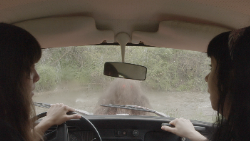 Breedlove’s print-the-legend conceit deteriorates from initial draw to tiresome gimmick, mostly because the film within the film’s acting is awful. Because the documentary portions are so earnest and nonjudgmental, I am unable to tell whether the “old” footage — treated to resemble a ropey, real-deal grindhouse print — is intended to be as cringingly amateurish as it plays.
Breedlove’s print-the-legend conceit deteriorates from initial draw to tiresome gimmick, mostly because the film within the film’s acting is awful. Because the documentary portions are so earnest and nonjudgmental, I am unable to tell whether the “old” footage — treated to resemble a ropey, real-deal grindhouse print — is intended to be as cringingly amateurish as it plays.
With clips from Curse of Bigfoot, UFO: Target Earth and Snowbeast (a made-for-TV movie incorrectly categorized as a theatrical feature), the doc does a good job of luring in those whose believe in the American drive-in, but Momo: The Missouri Monster is really for those whose love of the cryptozoological courses through their veins at a breakbeat-level BPM. Viewers on that wavelength will want in on this hunt no matter what. —Rod Lott

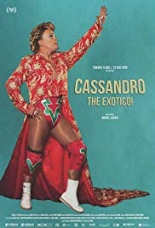
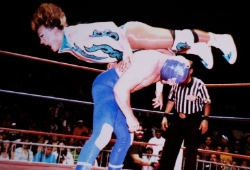

 She more than makes do. The displaced frames find a home as she initially sets out to examine and decry her homeland’s history of censorship, grouping the cuts thematically and presenting them with a modicum of context. We get a montage of screen kisses — chaste to erotic, consensual to forced, hetero- to homosexual — and think little of it. Young men then brandish knives, and their serrated machismo strikes the viewer of silly, if nothing else.
She more than makes do. The displaced frames find a home as she initially sets out to examine and decry her homeland’s history of censorship, grouping the cuts thematically and presenting them with a modicum of context. We get a montage of screen kisses — chaste to erotic, consensual to forced, hetero- to homosexual — and think little of it. Young men then brandish knives, and their serrated machismo strikes the viewer of silly, if nothing else.